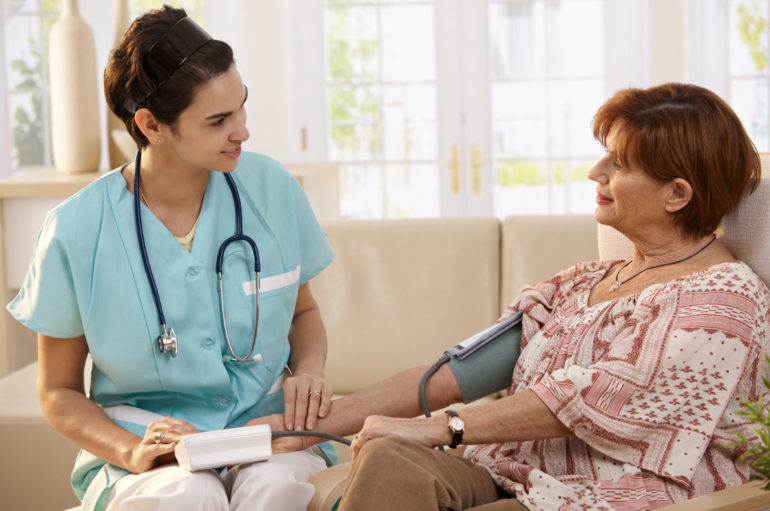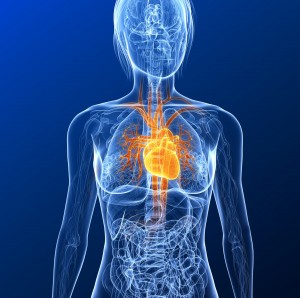
Women in menopause fear breast cancer, but they are much more likely to die of heart disease. Do you know the symptoms of heart attack in women? It could save your life.
Dr. Seibel Interviews Dr. Puja Mehta, Barbra Streisand Women’s Heart Center at Cedars-Sinai Heart Institute
Dr. Mache Seibel: Heart disease remains the number one killer in women today; more than lung cancer, breast cancer, stroke and COPD combined. What are the symptoms that should alert a woman she could be having a heart attack?
Dr. Puja Mehta: Women tend to present with atypical symptoms when they’re having a heart attack, such as a profound fatigue or shortness of breath. Less than half of them will have the classic chest pain. So women often dismiss their symptoms and some doctors also overlook these symptoms.
Dr. Seibel: What things put a woman at higher risk for heart disease?
Dr. Mehta: In addition to the traditional risk factors for heart disease such as high cholesterol, high blood pressure, sedentary lifestyle, and poor diet, newer risk factors for women include autoimmune disorders such as lupus and rheumatoid arthritis, and pregnancy-related disorders such as gestational diabetes, pregnancy-induced hypertension and preeclampsia.
Over 50% of women with symptoms have no blockage on cardiac catheterization so they are falsely assured they don’t have heart disease.
Dr. Seibel: So, women who have any of these things are at more risk of having heart disease and even heart attack.
Dr. Mehta: Yes, absolutely. Another critical issue is that a woman who presents to the emergency room physician with a heart attack often doesn’t have a blockage of the arteries around their heart. Even if she has a cardiac catheterization or cath, over 50% of women will not have a blockage; but she will still have persistent chest pain and persistent symptoms.
Dr. Seibel: A cardiac catheterization is putting a small catheter through a vein in an arm or leg and threading the catheter into the heart arteries and injecting a little bit of a dye in to see if the big arteries are blocked.
Dr. Mehta: Exactly. When that’s done, traditionally for men, you’ll see a blockage, which can be opened up with a stent. But often in women there is no specific blockage found, so, they are falsely reassured they don’t have heart disease.
Dr. Seibel: Is that because small blood vessels are the ones that are involved?
Dr. Mehta: Exactly. Over 50% of women who have open large arteries on an angiogram or a heart cath may have small vessels dysfunction. That’s called microvascular disease and microvascular dysfunction. It puts them at a higher risk for a heart attack; so it’s important to discuss this with your provider when you’re having persistent chest pain.
Dr. Seibel: So, if a woman is worried that she is having a heart attack and goes to the emergency room, even thought she may not have crushing chest pain, but she is having nausea or maybe discomfort at the angle of her jaw, or an upset stomach, or just doesn’t feel good and she gets a cardiac cath that shows her heart arteries are open, she still could be having heart disease and she ought to keep persisting and get a second opinion.
Dr. Mehta: Absolutely, that’s correct. There are additional tests that are special types of dye injecting tests, coronary reactivity testing and even Magnetic Resonance Imaging (MRI) that can help diagnose microvascular heart disease.
If the woman thinks she is having a heart attack, don’t be afraid or shy to call 911. If it’s not a heart attack, don’t feel embarrassed.
Dr. Seibel: Are there any other messages that you want to make women aware of?
Dr. Mehta: Women should know their numbers; their blood pressure and their cholesterol values. They should make time for physical activity despite their high stress job and taking care of children; make time for yourself. Don’t ignore your symptoms and specifically, if the woman thinks that she is having a heart attack, don’t be afraid or shy to call 911. Women often feel that if they call 911 and if it’s not a heart attack they will be embarrassed. Women should not feel that way –go ahead call 911 if you think you’re having a heart attack.
Dr. Seibel: So, bottom line, women are more susceptible to heart disease than they may think or realize. If they think they’re having a heart attack, they should call 911. And even if their arteries look normal on an arteriogram, realize you could still have heart disease in the small vessels. Special testing is available so if you suspect heart disease, get a second opinion.
Dr. Mehta: Exactly. That’s the message. When there are persistent symptoms like chest pain, shortness of breath, extreme fatigue or back or jaw pain with exertion, women should tell their medical provider, and the provider should order tests that may include an exercise treadmill test and possibly other tests such as a stress echo test (that uses ultrasound to test the heart while you are on a treadmill), a Single Photon Emission Computed Tomography (SPECT) scan, which is a nuclear imaging test that shows how blood flows to the heart, an MRI or a Positron Emission Tomography or PET scan that injects a small amount of radioactive material into a vein to look for abnormal blood flow. Remember, even if your large cardiac arteries are open, if you continue to have symptoms, microvascular and/or endothelial dysfunction should be considered and tested for.


